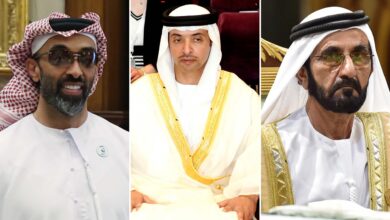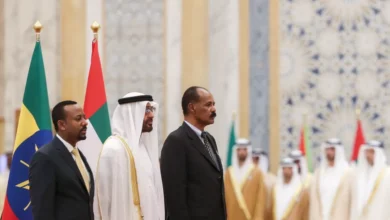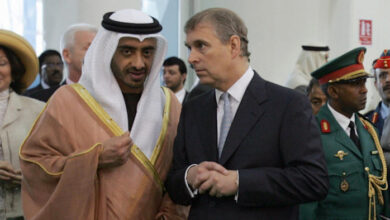The UAE’s Secret Campaign Against Marwan Barghouthi: A Bid to Install Its Own Palestinian Leadership

As regional and international actors push for a new phase of prisoner exchange agreements between Israel and Hamas, the name of one long-imprisoned Palestinian leader has re-emerged at the center of political intrigue: Marwan Barghouthi.
Barghouthi, imprisoned by Israel since 2002, is widely regarded across Palestinian society as the most credible and unifying figure capable of leading a post-Abbas Palestinian Authority. With unparalleled grassroots support, revolutionary credentials, and a clean break from the corruption-tainted legacy of current leadership, Barghouthi poses a challenge—not only to Israel but to regional players like the United Arab Emirates.
A Backroom Campaign to Block His Release
Well-placed diplomatic sources have revealed that the UAE has lobbied Israel—both directly and through intermediaries—not to include Marwan Barghouthi in any upcoming prisoner release agreements.
This lobbying effort is not merely symbolic. The UAE’s crown prince, Mohammed bin Zayed (MBZ), sees Barghouthi as a direct obstacle to the Emirati-led plan to install Mohammed Dahlan, the exiled Fatah security chief turned regional operator, as a future leader of Palestine.
For over a decade, Dahlan has operated from Abu Dhabi, where he holds a senior advisory role to MBZ. His name has been tied to covert Emirati activities in Gaza, Libya, Sudan, and Yemen. But in Palestine, his ambitions have stalled—due largely to popular rejection and the unshakable loyalty many Palestinians still hold for Barghouthi.
Why the UAE Fears Barghouthi
Barghouthi represents precisely what the UAE’s regional model opposes: an independent, popular, and nationally rooted leadership free from Gulf or Israeli influence.
His release could upend Abu Dhabi’s carefully orchestrated political engineering in the West Bank and Gaza. Worse for the Emiratis, a return of Barghouthi to the public scene could rally all factions of Palestinian society—from Hamas to the secular left—around a single, legitimate figure.
This, in turn, would likely doom Dahlan’s prospects, despite years of Emirati media promotion, regional diplomacy, and intelligence maneuvering on his behalf.
A Foreign-Made Palestinian Future
The UAE’s strategy reflects a broader shift in how Gulf autocracies project power: not just through arms or investments, but by shaping political succession in strategically vital countries. Palestine, for Abu Dhabi, is no exception.
Instead of supporting democratic processes or Palestinian popular will, the Emirati leadership seeks a controlled transition—preferably one that ensures Israeli and American blessings, tightens normalization frameworks, and keeps the Palestinian Authority compliant.
Barghouthi’s popularity, political weight, and independence pose a fatal threat to that model.
The Shadow of Mohammed Dahlan
Mohammed Dahlan is no ordinary exile. Long suspected of close cooperation with Israeli intelligence and openly aligned with the Emirati security establishment, his name has become synonymous with foreign interference in Palestinian politics.
Despite occasional efforts to rebrand himself as a “nationalist alternative,” Dahlan remains deeply unpopular in Palestinian refugee camps, civil society, and grassroots networks.
Nevertheless, the UAE continues to bankroll him—with media platforms, political operatives, and quiet backing from figures in Washington and Tel Aviv. His ultimate goal: to return to the West Bank not as a fugitive, but as a president-in-waiting.
Conclusion: At What Cost?
The battle over Marwan Barghouthi’s potential release is not just a legal or humanitarian issue, it is a political showdown between competing visions for Palestinian leadership.
One vision is indigenous, grounded in sacrifice, and rooted in popular legitimacy. The other is manufactured in Abu Dhabi, sponsored by a foreign regime, and aligned with the goals of normalization and strategic control.
If the UAE succeeds in sidelining Barghouthi, Palestinians may once again find their future determined not by ballots or resistance—but by backroom deals in foreign capitals.




